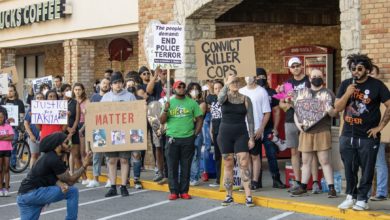On Nov. 21, the Philadelphia Police Department added yet another chapter to its long history of brutality and misconduct when Officer Frank Tepper shot and killed 21-year-old William Panas Jr.
 William Panas Jr., killed by off-duty officer Frank Tepper, was well-known and loved in his community. |
According to a Nov. 29 report published by The Philadelphia Inquirer, Panas was well-known in the community, and could often be found playing with the neighborhood children in the local playground. According to neighbors, Tepper, who was off duty, fired his gun when Panas tried to break up a fight that had started in Tepper’s home and spilled into the street. They described Tepper as apparently intoxicated and in no way threatened by Panas.
During his 16-year police tenure, Frank Tepper amassed a litany of complaints against him, from brandishing his weapon to intimidate neighbors to spraying a 17-year-old teenager with mace and assaulting a man in response to a verbal insult. Despite his vicious history, Tepper has been repeatedly exonerated by internal investigations.
As an instrument of state repression, the police are given a green light to use force in any way they see fit, with little consequence to bear for its abuses. Indictments and other forms of outside intervention are almost unheard of when police commit crimes. “Internal investigations” carried out by the police predictably lead to the exoneration of their own.
This particular incident, however, received too much exposure to sweep under the rug. The Philadelphia Police Department, with support from their corporate media brethren, is now trying to distance itself from Tepper, whose brutality is being portrayed as an isolated case that is not representative of the entire police force.
However, even a casual glance at police action in the last couple of years will show that this is not an isolated incident, but a systematic pattern of brutality whose victims are more often than not working-class people of color.
On May 15, 2008, 12 police officers dragged three African American men out of a car and proceeded to viciously beat them. A video camera captured the cops as they kicked, stomped and clubbed the three men repeatedly. Commissioner Charles Ramsey rationalized the actions of the officers by telling the city that emotions were running high since a police officer had recently died on duty.
On July 5, Philly cops burst into a church that served as a homeless outreach center during a Sunday service in search of a potential suspect. When the astonished pastor demanded an explanation for the disrespectful and illegal search, the officer launched into a loud and vulgar tirade, nearly arresting the pastor and his wife.
Later that month , a police officer shot and killed a homeless man. The man, wielding a box cutter, was clearly mentally ill. Rather than attempt to safely diffuse the situation without the use of lethal force, the officer fired four bullets into the man’s chest without hesitation.
Under capitalism, the police, along with the military, courts and prisons, are the repressive state forces employed to protect the property rights of the wealthy. The government and the corporate media give the state apparatus the cover required to carry out its repressive role, rarely casting doubt upon the legitimacy of its actions or the integrity of its members. Violence and abuse against poor and oppressed working-class communities are integral parts of the day-to-day work of the capitalist state.
How could a near-guaranteed impunity, combined with the racism and contempt for the poor that is a prerequisite for the repressive work of the police, result in anything but crimes against working-class people?
Police brutality is only one of the more extreme manifestations of a system in which private property trumps human life and banks are bailed out while people lose their homes and struggle to feed their families. It is a system that has nothing to offer to working-class people; it is a system that must go.





